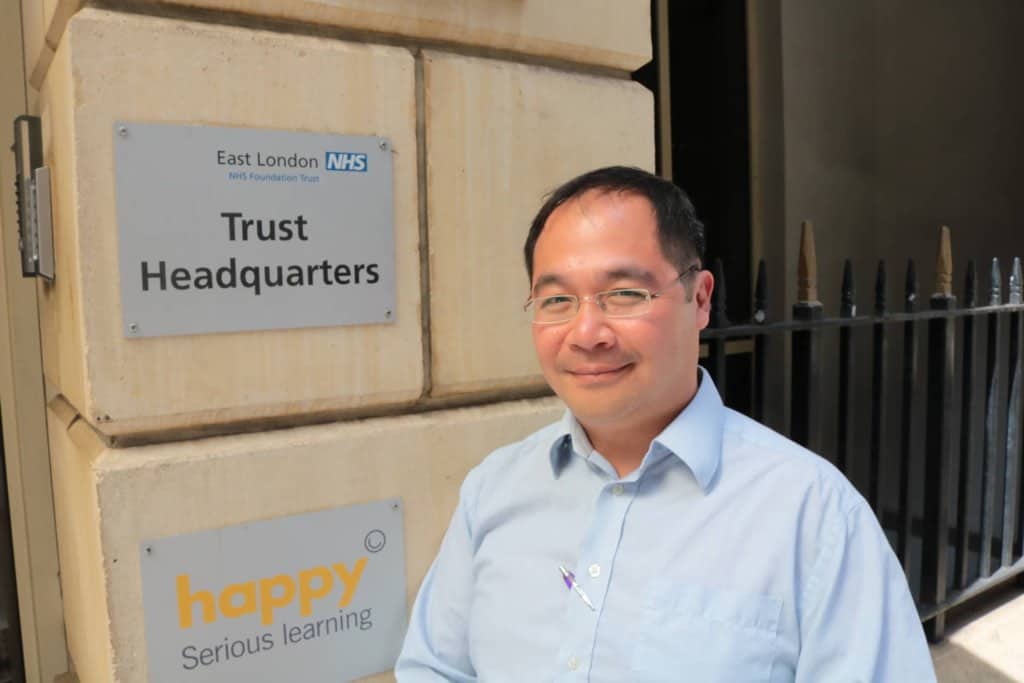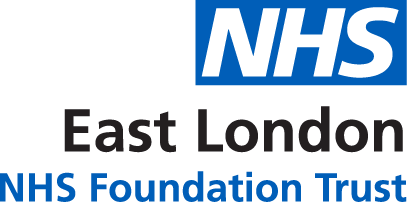Interview With ELFT Chair Mark Lam

AS anyone who has started a new job during the pandemic will know, it is a challenge to get to know the people you work with and the organisation when you cannot actually visit and meet folk in the usual way.
This has been true for our new Chair, Mark Lam, so in this interview, he tells us a bit about himself, why he is happy to be here and his vision for the future. Some of the questions have been submitted by staff.
What attracted you to working in a mental health and community health trust rather than an acute trust?
I honed in on mental health as we have personal experience of mental health issues within my family. I became aware of the impact of mental health when leading on diversity and inclusion when I worked in Telcoms. Where there is unfairness in society and people are unequal, it strikes at the heart of what makes us who we are.
I was struck as a lay person at the disproportionate impact of these factors on certain demographic groups. Additionally, I was drawn to work with a mental health and community health trust as I feel the future of NHS care is outside hospital settings and I was excited at the potential to be involved in this.
What exactly is your role in layman’s terms?
I am responsible for the Trust Board and ultimatly accountable for the Trust, working closely with the Chief Executive. My role is to oversee the direction we take and the vision we aspire to. I regard myself as an ambassador for the Trust to promote its great work at a local, national and international level.
How are you balancing the two Chair jobs? Are there any benefits to having a view of two trusts?
Mark is also Chair of Barnet, Enfield and Haringey Mental Health NHS Trust (BEH).
I’d be lying if I said it wasn’t challenging! But both are mature organisations with strong leadership teams that support me. Both trusts have a lot in common so we have a chance to share good practice and you face the same challenges.
For instance, the work ELFT is doing around race and inequalities is really interesting and I think BEH would like to do more along these lines. When BEH achieved its first Good inspection rating, there was such a sense of achievement. Both organisations are confidently open but are humble too.
How have you been getting to know ELFT and meet key folk, especially with the limitations of COVID restrictions?
I would love to be able to stop by and say hello to people. I have met staff when visiting Alie Street and I visited the CAMHS Team at Charter House in Luton. I am a very social person but I am comfortable with technology too. I have been able to meet the Trust Board and the Governors in online meetings and have ‘virtually’ visited a few wards too to say hi. I really want to be able to thank everyone for the incredible work they have done during the pandemic.
What are your impressions of ELFT so far?
What do we do well here? I have been struck by the openness here. Despite being a high performing trust, you are not complacent. I was attending a meeting for the first time and an honest discussion took place, calling out some issues that needed to be addressed - all in the spirit of continuous improvement.
Where do you think we need to make gains?
Although I am aware that a lot has been done, I think we need to do more to ensure that service users and colleagues in Luton and Bedfordshire feel part of the Trust and feel equal. It can be a slow process and we need to recognise local differences.
I think the coronavirus pandemic has highlighted health inequalities that we have previously failed to address in any meaningful way before. COVID has shone a light on the disadvantages faced by certain demographic groups who have suffered adversely.
I think working with regional partners in Bedfordshire, Luton and Milton Keynes (BLMK) and with North East London Health and Care Partnership can form the building blocks to make a material difference alongside public health and primary care teams.
We need to make it easy for people to access services that help their health and wellbeing, understand the different needs of different communities and develop services which are the best fit for them and that land well. We have a big opportunity here providing locally run services as we do.
What do you think are the next key developments/changes for the NHS especially since the pandemic?
I think we can already see the impact on the social fabric of our society and the mental health issues this has raised. We are in all likelihood about to experience the longest and deepest recession we have ever seen. But we are well prepared and there has been a lot of planning over the past few months.
It is hard to predict, and we need to be flexible and adaptable. For many, this will be the first time they have ever come forward for help with their mental health. We are talking to our local authorities and charity sectors to collaborate with them - we need to join forces to support our local communities.
What has a positive impact on your own mental health?
Physical exercise! I have really learnt this about myself. When I was a senior telecoms manager, I had to do a lot of weekend working and unsocial hours. I was driving myself into the ground because I wanted to do a good job and get a promotion. From that moment on, I drew a line under it all. I started to swim and go on long walks.
The thing is, my mind worked better, I was working more smartley and I did get the promotion. As well as exercise, I am an avid amateur pianist and I find it relaxing to play pieces and refine my technique.
What type of things do you do to support your family, friends and colleagues?
I think you need to be there for people even in these uncertain times. Little things matter - not grand gestures. You have to listen to people and keep in touch with loved ones. The test is when things aren’t going well. I don’t have a large social circle but you have to stay in touch, see each other when you can and put in the effort.
What did you want to be when you were a child?
I wanted to work at the United Nations! I loved the idea of the world coming together.
Who would be your four VIP guests (dead or alive) for who would join you for a socially distanced picnic?
Nye Bevan - to ask him what he thinks of the NHS and did he ever envisage it would grow to be the incredible institution it is today.
Kate Bush - I am a huge fan of her music. I like her attitude. We would have to have vegetarian food on the picnic!
Dr Sun Yat-sen - He was a revered revolutionary leader in China, responsible for over-turning millennia of dynastic monarchy and for his great love for his people.
Malala Yousafzai - I’d love to meet her. Her passion for equality at personal risk, someone who truly believes in making the world a better place.
